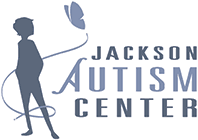Pete Wright, an attorney for individuals with special needs, will be speaking about special education law on July 24 in Jackson, MS. The special education law and advocacy conference will be held at St. James Episcopal Church and some of the hosts include: Mississippi Coalition for Citizens with Disabilities, REACH MS, and Mississippi Parent Training and Information Center. This is a great opportunity to increase your understanding of special education laws. You can register here.
Author: Dr. Rebecca Mullican
Summer Class Offerings at JAC
There will be social skills classes, “Acting Antics” Theatre Class, and “Singing Time” classes available on a limited basis this summer at Jackson Autism Center.
WLBT Highlights Yoga In A Classroom For Individuals with Autism
A Madison, MS special educator incorporates yoga in her classroom. Janice Stack at Madison Central, teaches a class for teenagers with autism. She has incorporated yoga into their classes 2-3 times a week. This WLBT story highlights the benefits she has seen by incorporating yoga into their routine.
National Autism Association lends a Helping Hand for Autism Therapies
The National Autism Association is helping parents pay for therapies for children, teenagers, and individuals ages birth to twenty-one. Parents can apply here if your child has been diagnosed with an autism spectrum disorder and your family income is less than $50,000. The NAA realizes the costs of autism intervention, the percent insurance pays or doesn’t pay, and wants to help make that affordable for families.There are limited funds so apply now! Jackson Autism Center is so excited about this opportunity!
Tips for Getting a Haircut for a Child with Autism
One of my clients is getting ready for a big day…getting a haircut! This has not been an easy task for her or her family- lately, it has ended with her becoming very upset and reenacting the entire haircut. I am currently working with her family to make this a more positive experience as she gets ready for her next haircut. As I was getting ready, I ran across these tips from Autism Speaks.
Here are a few things I am doing to help this be a more positive experience:
- Using Toca Boca’s Hair Salon Apps- Hair Salon, Hair Salon 2, Hair Xmas, and Hair Salon Me. We take turns in the “hair salon” fixing up the person’s hair, whether it be a girl, boy, Santa, Xmas tree, or a photo we take. This helps her become familiar with the steps taken when getting your hair cut and allows her to be in charge of what happens and when it happens.
- Writing out a social story about what will happen at the salon. This is based off our pretend play with the Hair Salon apps.
- Making a video social story. This will allow her to practice and process the haircut before it happens. We will video in a manner that looks as if we did cut hair so when she watches the video, she sees herself being successful getting her hair cut.
- If needed, she will visit the salon prior to the haircut. This will allow her to meet the hairdresser and share any specific requests she may have. One of these requests may be to only get a “trim.”
- A list of what will happen and in what order may help to decrease anxiety about the haircut.
- Becoming familiar with the items that will be used in the salon and the smells in the salon can both be useful tools to creating a good visit. Hair salons have many smells and may not be pleasing to an individual with autism.
 These are just a few tips to ease the stress of haircut day.
These are just a few tips to ease the stress of haircut day.
Autism Internet Modules Provide A Great Resource for Parents and Professionals
The Educational Service Center of Central Ohio is providing a free resource for parents and professionals alike- the Autism Internet Modules. AIM is free and provides its members with course materials, videos, case studies, and pre and post assessments. AIM can also be completed for course credits. This is a new resource I just found out about, so I haven’t had much time to explore it yet. Topics include behavior modification, picture exchange, visual supports, video modeling, social skills groups, the incredible 5 point scale, and much more. I am a huge fan of the 5 point scale and have found it very helpful for a wide range of clients and functioning levels. Some of the upcoming modules will focus on specific teaching techniques, toilet training, bullying, and using special interests. I’m excited to see such a great tool that can be used by anyone within the autism community who would like to grow their knowledge!
Here is just one of the materials available for purchase using the 5 point scale.
Talking to Your Child’s Class About Autism
Talking to your child’s class about autism may or may not be something high on your priority list. There can also be benefits through education and awareness. By explaining about a child’s differences and allowing children to explore the fact that everyone is different, you may find that the children in the class are more accepting and patient with your child.The word autism does not have to be used. Here are a few tips for talking to your child’s class:
- If your child is able to, allow him/her to be a part of the talk. This is a good way to teach him/her to advocate for themselves. Knowing what they do that maybe they wish they did not or explaining how they feel sometimes could be helpful to the other students.
- Use a children’s book to help explain some of the differences they may notice. Here are a few of my favorites:
- Explain how your child is similar to the other students. What does your child like to eat, watch on TV, play with, favorite color, favorite things to do, etc.
- By being open about differences and answering any questions the children may have, I have seen more acceptance, understanding, and patience from peers. If you choose not to talk to your child’s class, you could request that the teacher talk about differences between children and how everyone is unique. This could be a way to talk about differences without singling your child out.I have had students ask before “Why doesn’t he do this?” or “Why does he do that?” I find that being open and trying to answer those questions helps the children to have a better understanding. Sometimes, that answer is “he is still learning how to _______.” and sometimes a blanket statement of “I don’t know” may be appropriate.
What We Want to Be for Families…
Our friends at Helping Hands Center for Special Needs in Columbus, Ohio have a PTO that created this video about their experiences at HHC. JAC strives to be all of these things for each and every family we work with. Thank you Helping Hands Center and the PTO for this powerful reminder of why we do the work we do! We look forward to helping see more kids get toilet trained, communicating for the first time, learning to read, making a friend, and so much more!
Power Cards for Powerful Behavior
A friend recently shared with me a new type of social stories in a sense. They are called power cards and are used with individuals with autism. By using a person’s special interests, behavior can be explained and modified. So, for example, a child may need to learn to take turns when playing games and also really likes the movie Frozen, a teacher can make a power card explaining how Olaf takes turns when playing a game. Power cards are meant to be short and small (about the size of a business card) so the child can refer to it when needed. I see power cards for Jake and the Neverland Pirates in my future!
Five Local Resources for Families
Parents, guardians, and families are constantly on the lookout for new resources that can help them achieve goals for their child with a disability. Here are five local resources you may not have known about:
Camp Hope Hollow provides summer camps for individuals with disabilities beginning at age 4-adulthood. Children are grouped by age and participate in a variety of fun activities such as art, music, and much more. Camps are Mon-Thurs. during the summer and there are special activities throughout the school year.
Challenger League is a baseball league for individuals with disabilities. This is the perfect time of year to learn about this resource. Games take place at Wolcott Park in Ridgeland, MS. Children, teenagers, and adults play baseball each spring and have a great time!
Jackson Autism Center provides free support groups for families of children on the autism spectrum. Please feel free to contact us for more information.
Joni and Friends provides programs in the community for families who have a child with a disability. Some of the programs they provide locally include respite nights for parents and guardians as well as a prom night and other special events.
Mississippi Parent Training and Information Center has trainings, conferences, and advocates available to assist families in knowing the law and their rights as it relates to disabilities. MSPTI works with families of children birth to twenty-six to ensure educational success.
